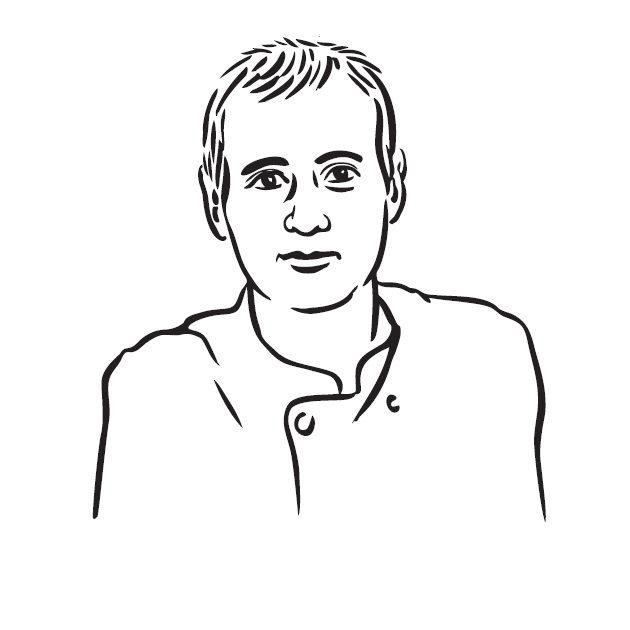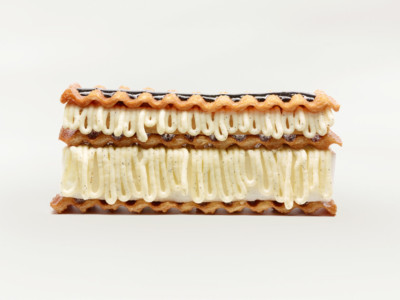Ever since getting his patisserie degree in 1997 and going on to work at the chocolaterie Hybord in Grenoble, FRANÇOIS PERRET worked for several prestigious Parisian luxury establishments. At Meurice, and then at the Four Seasons George V, he arrived as an assistant and left as the pastry sous-chef. He became the chef at the Table du Lancaster, with Michel Troisgros (2008). François Perret now oversees the 16 pastry chefs at the Shangri-La Hôtel. Every six months, in addition to his work at the gourmet restaurant and the hotel, he recreates a generous tea time offer with the floating island served semi-solid, the cheesecake with the flavours of the season, and a variety of different cream pastries. François Perret uses sugar sparingly but well.
 France
France

It’s an important one. We try not to put in too much because people don’t want too much fat, but you can’t do anything without cream today. It’s a fat that transmits flavours, provides unctuosity in the mouth and helps a dessert hold its shape. Heavy cream, for example, provides texture, unctuosity and flavour. Cream expands the senses in the mouth.
We use fluid cream in all its forms. In hot chocolate, for beaten or light creams and cacao sauces that go on the poire Belle Hélène. I love this cream, which has a real fragrance and character, and I use it especially for the tea time desserts. Crème fleurette (liquid heavy cream) provides a coating and has its own colour. Fluid cream with very ripe fresh fruits or lightly sweetened jams makes for very intense fruit mousses. When I don’t want acidity or with ice cream for its hygienic aspect (it’s less fragile), I use UHT cream. It has little flavour but is very sterile. If you mix the UHT with heavy cream, the latter holds better, falls less and the taste isn’t as obvious. And then there’s heavy cream, the gold of its class! When this fat is cold, it’s perfect. In a strawberry ice cream based on strawberry juice, it’s really wonderful. It creates an amazing ice cream that you want to devour in 3 minutes.
I’m from Bresse originally, and when I was little I would eat it with fromage blanc. Now, I’m starting to like using heavy cream more and more. I use it in practically everything, whereas 2 years ago I didn’t use it very much. It replaces mascarpone. It’s very useful for its hold and its body. Add heavy cream to a whipped cream for texture and unctuosity as well as a slight acidity that cuts the sugar. Before, I made a baba Chantilly with mascarpone, but it was too heavy. Now, my recipe desugars the baba, lightens the alcohol and has a cleansing effect. The cream brings something more than just aesthetics and texture. Also, in a lemon tart – lemon’s always a little rough around the edges – the acidity is counterbalanced with a heavy cream. In a glazing, it’s the same: the heavy cream replaces the white chocolate. In the mouth, the cream has a tempering effect and gives the dessert its characteristic qualities. Cream is the enchanting part of eating a dessert.
Ice cream. With moscato d’Asti, for example: a heavy cream in the alcohol adds smoothness. I cut it lightly with a fluid cream, otherwise it’s a little fat, too heavy.
I love it madly, obviously, no question!
The baba: infused with a dark rum, served with vanilla Chantilly cream (or mint, coriander, cacao Chantilly cream), cut with double cream, rinsed in alcohol, it’s the best cake there is today.
SHANGRI-LA
Paris 16e
 繁體中文
繁體中文  简体中文
简体中文  한국어
한국어  Français
Français 
